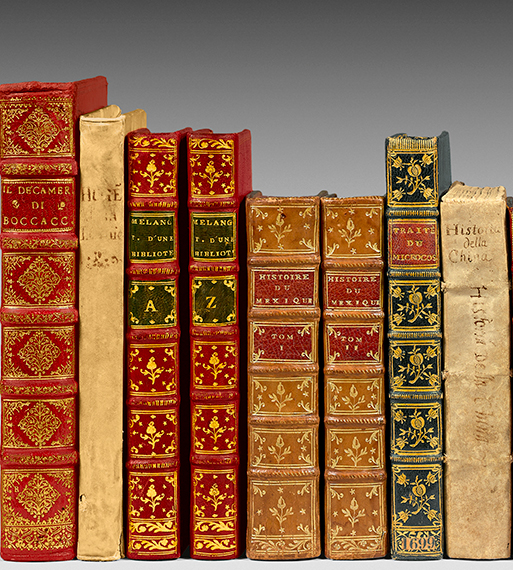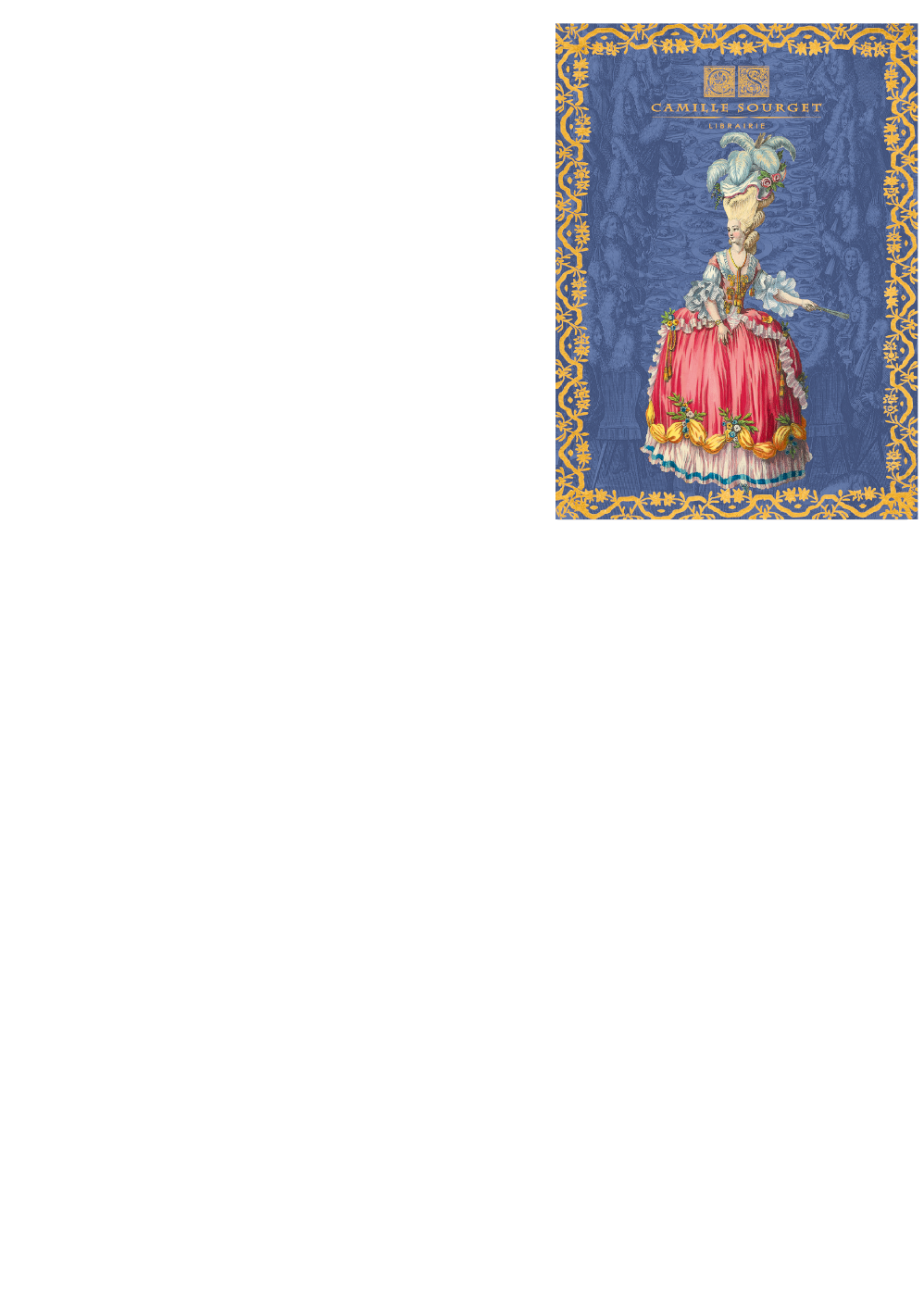Le Comic Dictionary by Leroux, “an instructive read,
qui recaptures some of the speech of everyday conversation,
qui is a very valuable repertoire of language habits of two or three generations”.
Leroux, Philibert-Joseph. Comic, Satirical, Critical, Burlesque, Free and Proverbial Dictionary. With a very faithful explanation of all the Burlesque, Comic, Free, Satirical, Critical & Proverbial ways of speaking, which may be found in the best Authors, both Ancient and Modern…
Amsterdam, Zacharie Chastelain, 1750.
In-8 of (2) ff., 15 pp., 285 pp., 336 pp., (1) f. Full midnight blue morocco, triple gilt fillet framing the boards, smooth spine adorned, gilt filet on the edges, gilt inner roulette, gilt edges. Binding of the time.
215 x 135 mm.
First edition cited by Brunet of this Dictionary of the familiar French language from the early 18th century.
Brunet, III, 998.
This dictionary lists familiar, popular, and vulgar words as well as proverbs and expressions by illustrating them with quotations from renowned authors.
First of all, from a historical point of view, Le Roux’s choice of corpus places him squarely in the movement against the “proper use” and the absolutism of Louis XIV, of which the linguistic policy of academic monopoly was just one of many manifestations. Indeed, Le Roux’s dictionary was censored several times — especially since the author seems to have been close to Jansenist sensibilities — censorship which did not prevent the Dictionary from being reissued, revised, and even plagiarized throughout the 18th century. The Dictionary also provides a particularly rich image of the mentality of an era through the encyclopedic references it contains, thereby contributing “to the knowledge of the Grand Century beyond the constraints imposed by official culture”.
From a linguistic point of view, Le Roux seems to have a real project that demonstrates sensitivity to sociolinguistic, rhetorical, and pragmatic issues, which is reflected in the presence, in the entries, of not only grammatical, etymological, semantic, diatopic, and diachronic marks, but also diaphasic, diastratic, and pragmatic ones (extremely interesting documentation for reconstructing the spoken language of the time).
“Essentially, the Dictionary is dedicated to recording the terms and expressions of everyday familiar language, “free” or “proverbial”, with the proverb here being both the figurative expression become cliché, but also the pictured maxim reflecting a common conception or simply the clichéd formula. A real collection of popular phrases, Leroux’s collection often exceeds the literary framework to focus on trivial idiomatic expressions: in doing so, it constitutes a precious and rare testimony on the state of spoken language towards the end of the 17th century. Many of these sayings that have been preserved have experienced notable changes in their meaning.
The most interesting part of the book seems to me to be what relates to Paris: one finds a multitude of curious observations often accompanied by ironic reflections.
Thus, truly everything is found in this Dictionary, starting with what one does not expect to find in such a work. It is an amusing read and never tedious; one sees that Le Roux does not resist the pleasure of elaborating on some of his satirical comments…
It is also an instructive book, which recaptures some of the speech of everyday conversation, which is a very valuable repertoire of language habits of two or three generations. It shows the richness of verbal creation, both in the popular world and in refined society, and it collects a plethora of terms that have since disappeared. It is finally a very useful dictionary, ‘to foreigners and even to the French themselves’, for it allows understanding or clarifying the meaning of the phrases used by comic, ‘realistic’ or familiar authors at the end of Louis XIV’s reign. It is contemporary with the last burlesques and the young Marivaux, Dufresny, Palaprat, Destouches or Dancourt, the Théâtre de la Foire, and the Italians. ‘In short, there are few people to whom this Dictionary is not as useful as it is enjoyable, for one will not notice the dryness, the uniformity that all others have’”. Yves Giraud.
Precious large paper copy, preserved in its elegant contemporary midnight blue morocco binding.

